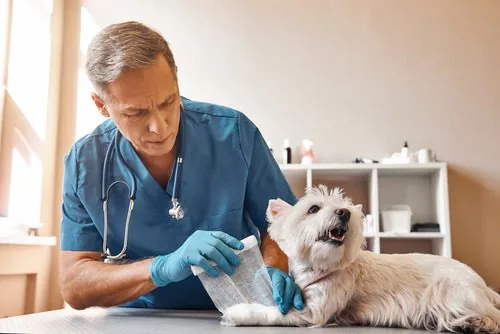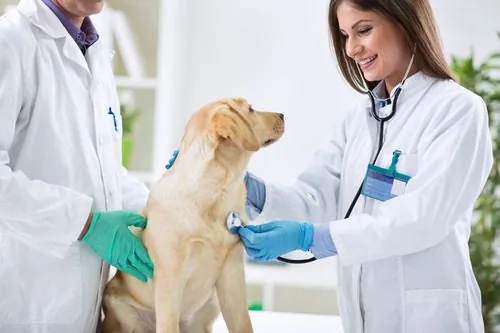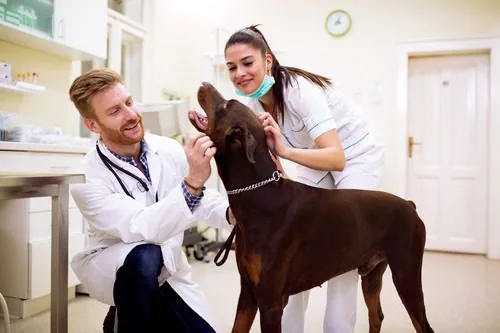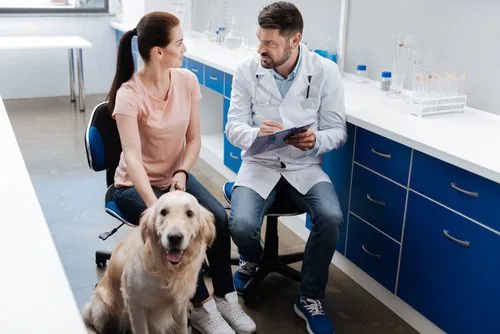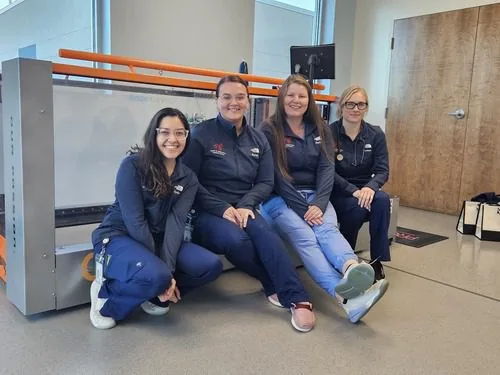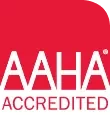How to Potty Train Your New Puppy in Winter Haven, FL
Potty training should start with creating a schedule that will be easy for you and your puppy to stick to. It will be a bonding experience for you and your dog as they begin to accept and love you as their teacher and guardian.
Potty training your puppy will involve repetition and perseverance. You will need to help your dog find a spot where they feel comfortable urinating and get them to practice in that spot consistently. You will also need to recognize signs that your puppy needs to go potty.
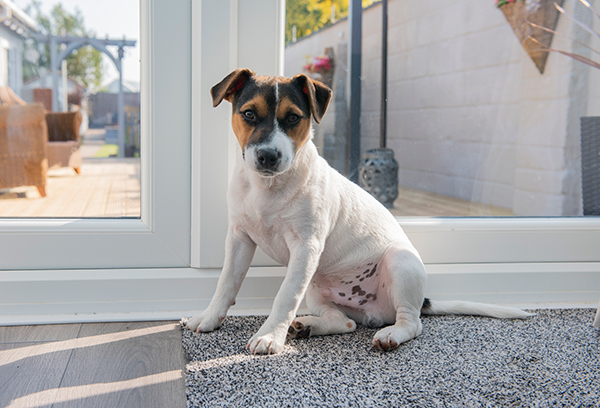
Potty training your puppy should be a positive experience for both of you. Read this article and find out more about how to potty-train your new puppy.
What Steps Can You Take to Potty Train A Puppy?
You can take steps to ensure that your puppy successfully learns how to go potty. Getting adjusted to a schedule will be a process for your dog, and they will need all the patience and positive reinforcement you can muster.
The following are steps you can take to help your new puppy learn how to go potty appropriately.
Get a Crate
A crate is an ideal tool for potty training your pup. A crate will help your puppy to learn that it is not appropriate to go potty indoors because they will typically not go to the bathroom in the same place where they sleep.
A crate will give them their own space to begin to understand that they need to go outdoors, or at least they will know that they need to go outside of the crate to go potty. That is the first step in teaching them. You can also mimic a crate by putting up a baby gate.
A baby gate will limit the amount of space your pup has access to. During this learning period, you will need to supervise them so they are not going to the bathroom on the floor.
Create a Potty-Training Schedule for Your Puppy
When you create a consistent daily routine for your puppy, they will learn the times in which they are going to go out to go potty. You should try to take your dog out during the following times:
- The first thing in the morning, when they wake up
- Whenever your puppy wakes up from a nap
- During and after playtime
- Five to thirty minutes after they eat
- Before you and your pup go to bed
If you set this routine for your pup, they will likely acclimate themselves to the schedule. However, it will not always be that simple.
It is essential to keep in mind that while you will be trying to take your pup out at the above times, you will need to take them out when they tell you they need to go potty. You do not want to exclude them when they naturally need to go to the bathroom.
The above is just a guide you can use when you first begin to train them. If necessary, you may need to take your pup out every hour. You will find that puppies need to go potty quite often.
Try to Potty Train in a Designated Area
When you take your dog to go potty, go to a specific location of you or your dog’s liking. Try establishing a connection with the particular spot and going to the bathroom. When you are first potty training your pup, you will need a leash.
Puppies can be hyper or easily distracted. They may go off and explore instead of focusing on going potty. You want to be able to give them praise and a reward when they succeed at going potty in the designated spot.
This scenario is how they learn that this is good behavior and create a habit they will understand as being correct. Give them a treat and some pets every time they go to the bathroom in the chosen spot.
Understand When Your Puppy is Telling You They Have to Go Potty
Even though you may have started to set a routine, you need to be aware of the signals your pup needs to go potty. There are some common signs you should look out for.
If your puppy seems restless, or if they are pacing, barking, or scratching at the door, they may need to go outside to do their business. They will also sometimes bark or whine to get your attention.
Puppies may also sniff around the floor and follow their noses around until they locate the spot they want to go to. You do not want that spot to be on the floor in the house.
They may also go around in circles while sniffing the ground. Dogs and puppies will often do this right before they defecate, so you must get your pup outside right away if they are displaying this behavior.
You will need to learn the signs that your puppy needs to go to the bathroom so that you can avert any unwanted behaviors and keep accidents from occurring in the house.
Keep Working with Your Puppy
Many people will often start too lenient with the potty-training schedule too soon. This blunder is a common mistake. It would be best if you stick to the routine for a while until there are no more accidents, and your pup adjusts and learns when they can expect to go out.
When you and your puppy are on the same page, that is when the magic happens. Your dog will start to be the ones to enforce the schedule instead of you always being the one to do it.
As long as you are getting your puppy outside on time, you will set a precedent that and they will even start to be able to hold their urine until they get outside.
Be Understanding if They Have an Accident
Maintaining a set schedule is only part of the training. It is your job as a new puppy parent to understand if your dog has an accident in the house while they are still learning. If you find your puppy going to the bathroom inside, calmly but firmly redirect them.
Do not scream at your puppy, as it will only frighten them. Use the accident as a lesson to train them better. Maybe you need to take them for longer walks or add in another walk during the day.
You need to be understanding with your puppy and allow them to make mistakes. If you find evidence of defecation in the house, clean it up and keep practicing until they only go potty outside.
Potty Training Your New Puppy Takes Time and Patience
It would be best to keep your puppy on a consistent potty-training schedule. Consistency is vital for them to anticipate and learn when they will be going outside to relieve themselves.
Use encouraging reinforcement to let them know they did well when they went potty outside. Do not punish them or yell at them if they make a mistake.
Keep practicing, and your dog will eventually learn the schedule. The more opportunities your pup has for appropriate elimination outside, the better they will get at going potty!
Recent Posts
Working at a 24/7 Emergency Veterinary Practice
Working at a 24/7 Emergency Veterinary Practice Working at a 24/7 emergency veterinary practice is a unique…
Do Veterinarians Have a Good Work-Life Balance?
Do Veterinarians Have a Good Work-Life Balance? When it comes to the dedicated professionals who care for…
6 Reasons to Work in a Specialty Referral Veterinary Practice
6 Reasons to Work in a Specialty Referral Veterinary Practice Working in the veterinary field is incredibly…
Is Being an Oncology Veterinarian a Rewarding Career?
Is Being an Oncology Veterinarian a Rewarding Career? Choosing a career path in veterinary medicine opens the…
Canine Water Treadmill Therapy
Canine Water Treadmill Therapy Welcome to our informative guide on Canine Water Treadmill Therapy. This revolutionary rehabilitation…
About Veterinary Healthcare Associates
Veterinary Healthcare Associates in Winter Haven, FL, was established over 30 years ago as Maxwell Animal Clinic by Dr. John Maxwell. Maxwell Animal Clinic was a one-doctor general practice offering preventive care, dentistry, and standard surgical services to the community. As the years passed, Maxwell Animal Clinic evolved into a thriving 10-doctor general, specialty referral, and emergency veterinary practice.

